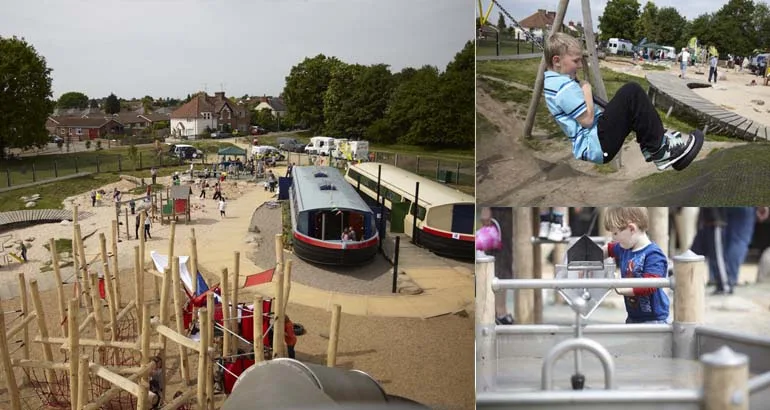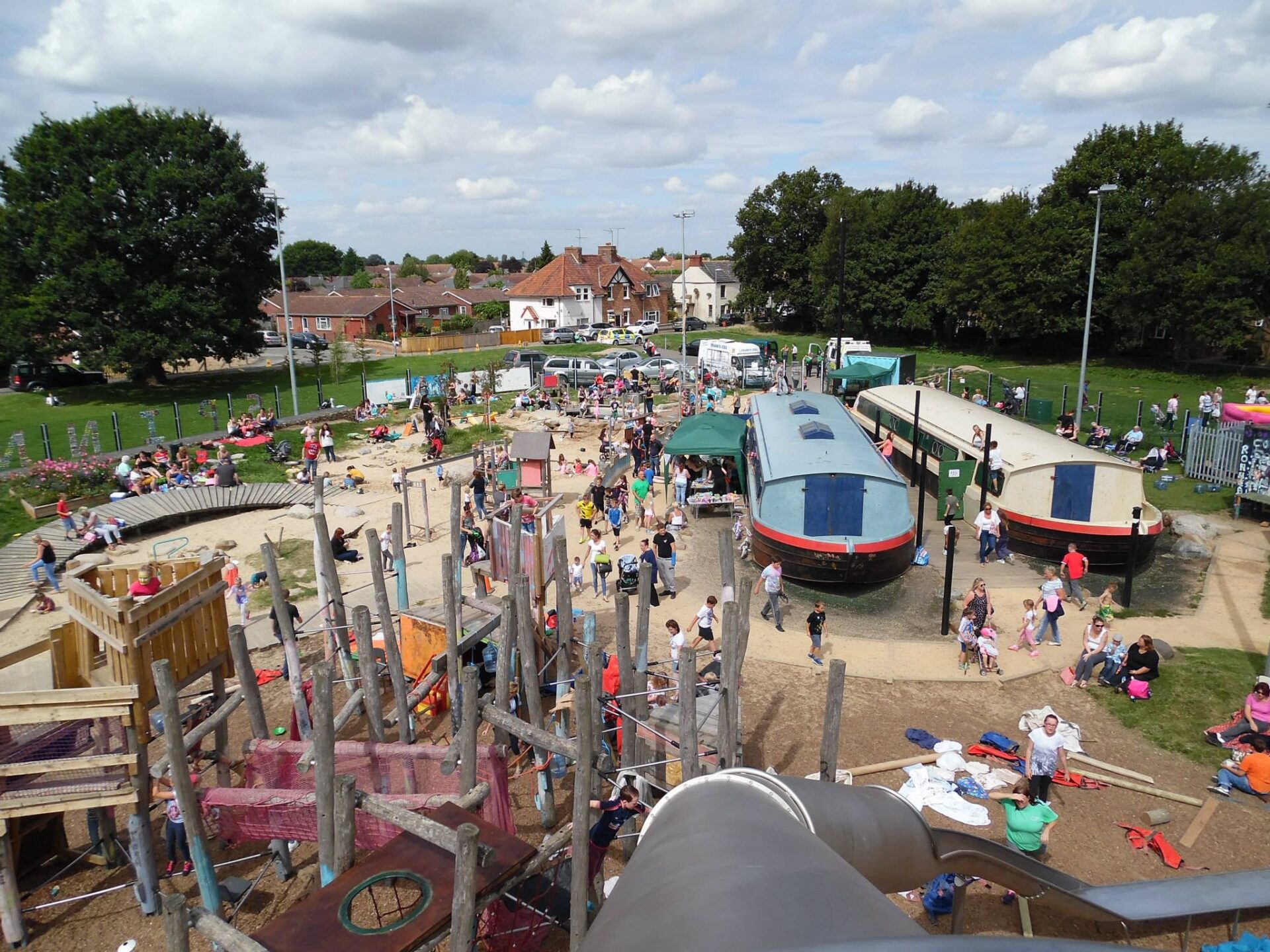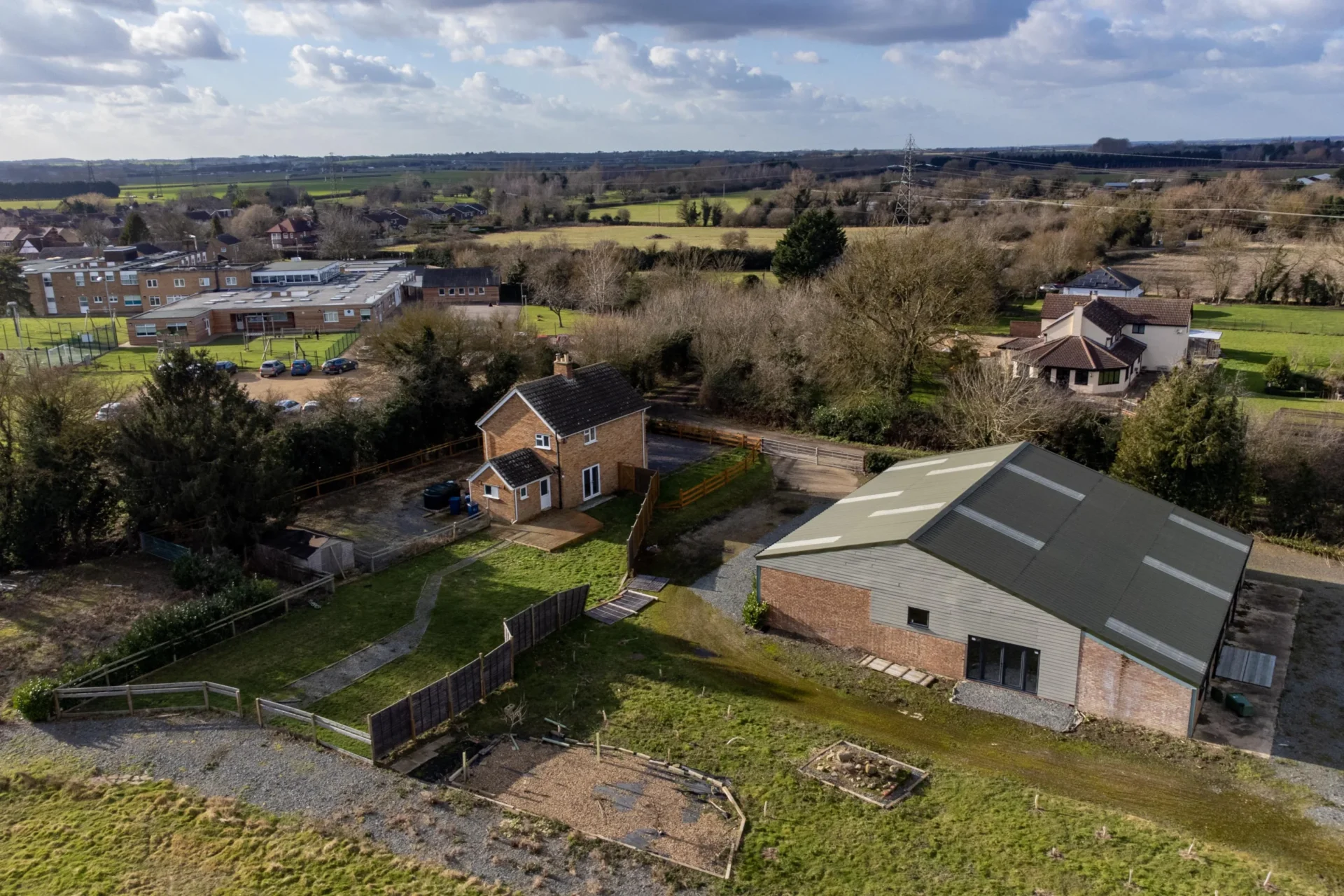An adventure play park built for £1m 13 years ago is to be replaced thanks to a Government grant of more than £900,000.
The replacement is being funded by the Department for Culture, Media, and Sport (DCMS) as one of four national pilots for a Youth Investment Fund (YIF) grant.
£914,650 was received by Cambridgeshire County Council in May.
The council recently closed the centre -temporarily – after a survey found structural issues with equipment.
Now the whole playground is to get a facelift, says a report to this week’s communities, social mobility, and inclusion committee.
Government funding will provide “a new fit for purpose modular youth facility, replacing the indoor space function of the two barges currently on site and in a poor state of repair, along with providing a suitable space for youth provision in the town”.
The committee will hear that “the grant agreement states that given the unique nature of the facility and the uncertainty over final costs, DCMS will review the amount awarded prior to the council entering into any contract for construction of the facility.
“If, at the procurement stage, the modular facility appears unaffordable within the amount awarded, then DCMS will work with the council to pursue affordable, alternative youth facility provision”.
However, if the modular facility appears affordable at the procurement stage but then subsequently the capital costs increase over the amount of £914,650 awarded in 2022/2023, then DCMS will support an additional award.
This will enable the council to deliver the project to the agreed scope and within the agreed timeline, where these costs arise from the design, construction, site conditions, planning outcomes or completion/commissioning of the project.
Councillors will be told the new modular building will align with ambitions for net zero carbon emissions for Cambridgeshire by 2045.
“The approach to lowering carbon is proposed through a low carbon-built fabric which provides the opportunity from which to lower operational carbon to net zero,” says a report to councillors.
“The lightweight construction is built off-site before being delivered to site. This minimises carbon used during construction, decreases deliveries to site and creates less waste.
“The foundations of the building will be made from screw piles, minimising the need for intrusive and carbon intensive foundations.”
The council says the completed scheme will support part of Wisbech “in a high area of need, with a significant footfall in an environment already well used by children, young people and families within the area”.
The grant will replace the two deteriorating barges to enable a fit-for-purpose youth space for the young people of Waterlees and wider Wisbech community.
“The new building will act as an incubator space and catalyst for new youth project development,” says the report.
“In the past, lack of suitable accommodating space has been a prohibitive factor in the development of additional services, that due to need are often successful in gaining revenue funding.”
The new building will facilitate a programme of activities to include opportunities for volunteering “taking meaningful social action and having a voice”.
Next stage of the YIF programme, is for the council to accept an invitation to apply for a revenue grant for up to 20 per cent of the capital grant (£182,930).
Government funding will also pay for temporary facilities “to avoid service disruption during construction phase and landscaping”.
Also included are I.T. costs including installation of a Wi-Fi connection which has been identified as a priority for the site.
Additional income is expected to be generated from letting of space to key partners and third sector organisations and “provides the opportunity for a long-term income stream to offset any increased costs in facilities maintenance”.
It is anticipated that the building will have lower energy costs than the current barges which run on electric heaters.

The new building is planned to benefit from an air source heat pump, solar panels and efficient insultation that far outperforms the existing set up and will reduce both energy consumption and emissions generated.
“A letter of comfort has been negotiated between DCMS and the council to give assurance and mitigate risks around the potential for increased costs of delivering the building compared to the funding awarded,” says the report.























